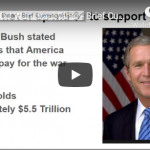The Cool Kids Guide to Banking and Finance
Have millennials sworn off banking — or are banks just particularly lousy at engaging with this tech-savvy, recession-burned group?
A bunch of recent reports make it look like the former: In a survey earlier this year, the Washington-based FINRA Financial Investor Education Foundation found that about 12% of millennials say they don’t use the banking system, which is “more than any other generation, including GenX.”
It gets worse (and not just for bankers): “One out of three higher-income millennials use the high-cost services of pawn shops, payday lenders and the like,” the survey found.
That’s nuts. Even scarier, millennials think they’re doing it right.
In a survey of 1,001 people ages 18-34 released last month, USA Today and Bank of America exposed a “disconnect between the way millennials think about their finances and what they’re actually able to achieve.”
They say they have good financial habits, though the majority still worry about their financial situations. They think they’ll be at least as well off, if not more, than their parents — yet more than a third still receive financial support from family. They say they’re good at living within their means, but many are living paycheck to paycheck. And while this age group has prioritized reducing debt, many are unable to put away emergency savings simultaneously.
Obviously pay issues — not getting paid enough, that is — and personal accountability play large components in this mess. But every generation has to be coaxed into the regimen of putting aside money now for much, much later, and needs to learn that saving isn’t enough — you need to invest.
Now tech entrepreneurs are worming their way into this white shoe world — and we’ll find out whether this is a generational abandonment of banking or whether they’re just being woo’ed the wrong way.
PayPal co-founder Max Levchin is pretty blunt on the topic. “A lot of younger people really just dislike big banks or any banks really,” he told USA Today. “They watched their parents suffer through a reduction in credit limit, or a mortgage that collapsed on them. They basically had a front row seat during their formative years during the 2008 financial crisis.”
Levchin, a serial entrepreneur whose latest venture, Affirm, lends money for small consumer item, thinks young adults simply mistrust the industry, which will cripple them when they really need credit later on in life. “I realized there’s an opportunity to at least try to convince this young demo that not all banking is bad because they’re going to need it,” he told the newspaper. “It’s not like they can just finance their house with cash.”
Vladimir Tenev and Baiju Bhatt are betting on millennial malaise when it comes to investing, as well. The co-founders of Robinhood just released an iPhone app that eliminates commissions for buying and selling stock. Their wait list grew to 500,000 in the year since they announced the project.
Sure, that only saves about $10 or less. But thinking of the service in that “so what?” way is like saying Über makes no sense because it’s just a taxi service. If you didn’t already have a relationship with a broker, where would you go? This mobile-first company let’s you create an account in a few minutes and essentially use it for nothing indefinitely (They charge for premium services, like margin trading).
Tenev and Bhatt told Business Insider they were inspired by the Occupy Wall Street movement “in which protesters, upset about large bank bailouts, occupied Zuccotti Park and other financial districts for months, denouncing Wall Street and the government’s leniency toward bankers.”
That might explain the odd name. It shouldn’t be necessary to invoke the name of a fictional character who stole from the rich to give to the poor to induce grown ups to become investors.
But these kinds of innovations are exactly what the larger industry isn’t doing to meet new customers where they want to be.
Is this pandering, or has the banking industry dropped the ball?

















